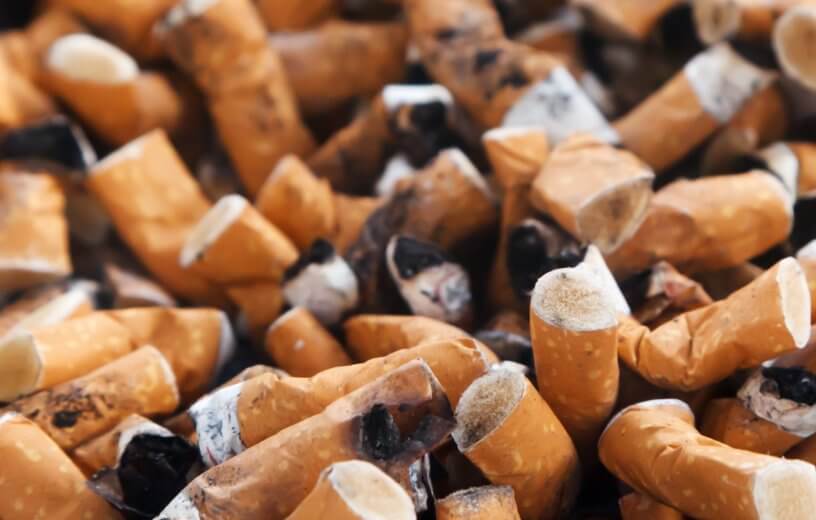CAMBRIDGE, England — It’s hard to travel almost anywhere on this planet without coming across at least a few stray cigarette butts. In fact, cigarettes butts are the most common form of litter, with an estimated 4.5 trillion discarded in public each year. Most smokers believe they’re harmless to the environment, but a new study out of England has found that cigarette butts seriously hamper plant growth.
Researchers from Anglia Ruskin University have, for the first time ever, illustrated that the presence of cigarette butts in soil significantly reduces the germination success, stem length, and root weight of nearby plant life. The study’s authors analyzed two plants in particular: white clover and ryegrass.
When exposed to cigarette butts, white clover’s germination success was reduced by 27%, its stem length reduced by 28%, and its root weight reduced by 57%. Similarly, rye grass’ germination rates reduced by 10%, and its stem length dropped by 13%.
“Ryegrass and white clover, the two species we tested, are important forage crops for livestock as well as being commonly found in urban green spaces. These plants support a wealth of biodiversity, even in city parks, and white clover is ecologically important for pollinators and nitrogen fixation,” explains lead author Dr. Dannielle Green in a statement.
For comparison, researchers included three experimental soil groups: One group containing used butts, another with unused butts, and a control group including pieces of wood that were the same shape and size as cigarette butts.
Surprisingly, unused filters had the same negative effect on plant growth as used filters, indicating that its the filters themselves, not the toxins typically associated with cigarette smoke, that are impeding plant growth.
“Many smokers think cigarette butts quickly biodegrade and therefore don’t really consider them as litter. In reality, the filter is made out of a type of bioplastic that can take years, if not decades, to break down,” Green says.
Most cigarette butts contain filters made of cellulose acetate fibre, a form of bioplastic. Researchers believe that it’s the chemical composition of these filters, combined with added chemicals intended to make the plastic more flexible, that is causing the damage to plants by leaching out into surrounding soil.
The study’s authors hope to spread the word about their findings, and eventually change the perception that it is socially and environmentally acceptable for smokers to discard their cigarette butts anywhere and everywhere.
The study is published in the scientific journal Ecotoxicology and Environmental Safety.
